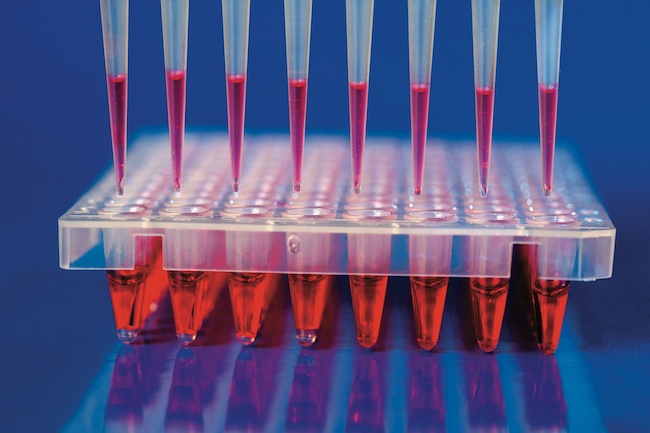By Nicolas Smith
How to overcome challenges like inefficient workflow and a lack of suitably trained staff is the question increasingly facing laboratories in markets ranging from diagnostics to food and beverages. Could sample-to-answer systems be the answer?
Molecular diagnostics, used to test specific sequences in DNA or RNA that might be associated with disease, is growing rapidly.

But anyone familiar with the biomedical laboratory environment will probably agree that common clinical use of molecular techniques is still not as widespread as it is in academia. The main reason for this is the fact that, as an article on the Medical Laboratory Observer (MLO) site puts it “Molecular testing still mostly requires infrastructure and specialized technical expertise not available at smaller medical facilities.”
The shortage of skilled lab technicians, which has been causing concern in the industry for some years is a clearly stated factor.
It’s not surprising then that sample to answer devices that automate the entire molecular testing process with little or no interaction by a user are becoming more and more appealing.
Pros and cons of sample to answer
MLO suggests that the growth in sample to answer systems “inspires futuristic visions of going to your local clinic or individual doctor’s office to have complex molecular tests done on the spot”.
Apart from the benefits to patients, there are obvious advantages to sample to answer systems. They can be operated by staff who are not highly trained and reduce the need for much of the specialized equipment traditionally needed in a molecular laboratory. Because sample to answer equipment offers a ‘walk away’ solution, laboratory staff are freed up to do other things.
Sample to answer systems can definitely also play a key role in a full molecular laboratory, handling rush ‘STAT’ specimens or extending testing hours round the clock.
But what happens if you take away the “eyes, experience, and judgement of an experienced clinical laboratory scientist”? This is the question asked by the writer of the MLO piece and it can only be answered by proven improvements in sample to answer technology.
So, while it’s inevitable that the popularity of sample to answer platforms will continue to grow, it’s certainly wise to remember the value of skilled lab technicians.
About the author

Nicholas Smith
Nicholas Smith is Head of Global Marketing and Portfolio Management for Tecan’s Partnering Business. A key function of his team is to work closely with customers to develop new product concepts and proposals based on a thorough analysis of their specific requirements. Nicholas’ joined Tecan in 2012 from Roche Diagnostics where he worked for over 20 years in a variety of roles within marketing and business development.










